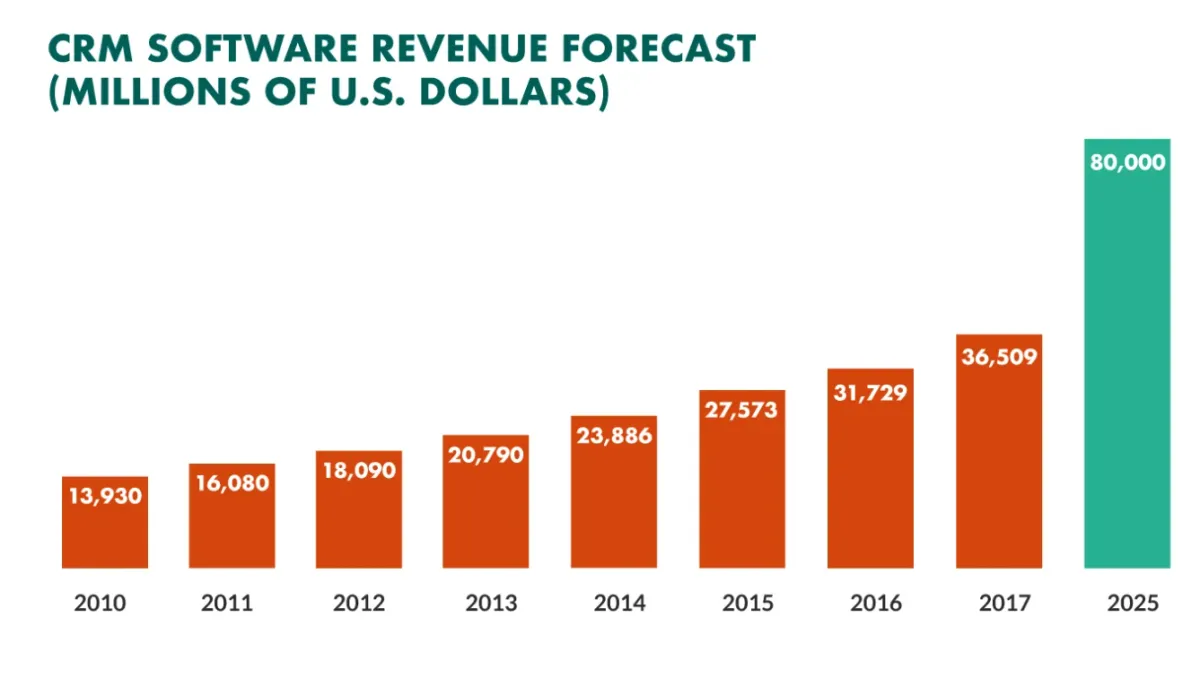LeadAttractor Insights - Your Guide to Business Excellence
Want to stay updated with the latest insights? Subscribe to our newsletter and never miss a post!

The Power of CRM Integration
Customer Relationship Management (CRM) systems have become a cornerstone of modern business strategy, going far beyond the mere management of customer data. A crucial aspect that amplifies the value of CRM systems is their integration capabilities. This comprehensive exploration highlights how integrating CRM systems with other business tools and platforms can transform business efficiency, streamline workflows, and significantly enhance customer engagement.
The Power of CRM Integration
Understanding CRM Integration
Integrating CRM systems with other business applications allows for seamless communication and data sharing, bridging the gap between various business functions. This integration ensures that valuable customer insights are accessible across the enterprise, promoting cohesive strategies and unified operations.
Enhanced Data Coherence
Integrating CRM data with other business systems creates a single source of truth for customer information. This unified data source eliminates discrepancies, ensures consistency, and facilitates comprehensive insights into customer behaviors and preferences.
Streamlined Workflows
CRM integration enables automated workflows across departments, reducing the need for manual data entry and allowing teams to focus on strategic initiatives. Automated workflows enhance efficiency, ensuring timely and accurate execution of business processes.
Personalized Customer Engagement
Integrated CRM systems empower businesses to leverage comprehensive data insights for personalized customer interactions. By accessing data from various sources, businesses can deliver targeted and timely communications, significantly enhancing customer satisfaction and loyalty.
Evaluating CRM Integration Capabilities
Pre-built Integrations
When choosing a CRM system, it's essential to consider the availability of pre-built integrations. These integrations allow for quick and effortless connections to popular business tools, reducing the time and effort required for setup and maintenance.
API Access
For businesses with unique integration needs, robust API access is crucial. APIs enable customized connections between the CRM and specific business tools or proprietary systems, ensuring tailored solutions that meet unique business requirements.
Support and Resources
The level of support provided by the CRM vendor is a critical factor. Comprehensive documentation, customer service, and technical assistance are essential for successful integration and ongoing maintenance.
Strategic Implementation of CRM Integrations
Prioritizing Key Integrations
Identify the most critical business tools and systems for integration based on your business processes and customer engagement strategies. Prioritizing key integrations ensures that essential functions are seamlessly connected, enhancing overall business efficiency.
Monitoring and Optimization
Continuous monitoring of integration performance is necessary to adapt to evolving business needs and emerging technologies. Regular optimization ensures that integrations remain effective and align with business objectives.
Investing in Training
Adequate training for your team on the integrated CRM system is essential for maximizing its benefits. Training ensures that users understand how to leverage the system effectively, leading to improved utilization and ROI.
The Impact of Integration on CRM Potential
Unlocking CRM Potential
The integration capabilities of a CRM system are instrumental in unlocking its full potential. By connecting CRM systems with other business tools, businesses can ensure seamless data flow, enabling interconnected workflows and comprehensive customer insights.
Bridging Business Functions
Integrations bridge the gap between various business functions, promoting collaboration and unified strategies. This interconnectedness enhances operational efficiency and supports cohesive decision-making processes.
Elevating Customer Experience
Integrated CRM systems provide a holistic view of customer interactions, enabling personalized and timely engagements. This enhanced customer experience leads to increased satisfaction and loyalty, driving business growth.
Conclusion: The Future of CRM Integration
Harnessing the Transformative Power
As businesses continue to navigate the evolving landscape of CRM systems, a keen focus on integration capabilities will be instrumental in harnessing their transformative power. The ability to connect CRM systems with other business tools not only enhances operational efficiency but also elevates the customer experience, positioning businesses for long-term success.
FAQs
What is CRM integration?
CRM integration involves connecting a CRM system with other business tools and platforms to enable seamless data sharing and communication. This integration enhances efficiency, data coherence, and customer engagement.
Why is integration important for CRM systems?
Integration is crucial for CRM systems because it ensures that customer data is accessible across various business functions, promoting unified strategies and streamlined workflows.
What are pre-built integrations in CRM systems?
Pre-built integrations are ready-made connectors that allow CRM systems to easily integrate with popular business tools, reducing the time and effort required for setup.
How does API access benefit CRM integration?
API access allows for customized integrations, enabling businesses to connect their CRM systems with specific tools and proprietary systems to meet unique business needs.
What should businesses consider when evaluating CRM integration capabilities?
Businesses should consider the availability of pre-built integrations, API access, and the level of support and resources provided by the CRM vendor.
How can businesses maximize the benefits of CRM integrations?
To maximize the benefits of CRM integrations, businesses should prioritize key integrations, continuously monitor and optimize performance, and invest in training for their teams.

LeadAttractor Insights - Your Guide to Business Excellence
Want to stay updated with the latest insights? Subscribe to our newsletter and never miss a post!

The Power of CRM Integration
Customer Relationship Management (CRM) systems have become a cornerstone of modern business strategy, going far beyond the mere management of customer data. A crucial aspect that amplifies the value of CRM systems is their integration capabilities. This comprehensive exploration highlights how integrating CRM systems with other business tools and platforms can transform business efficiency, streamline workflows, and significantly enhance customer engagement.
The Power of CRM Integration
Understanding CRM Integration
Integrating CRM systems with other business applications allows for seamless communication and data sharing, bridging the gap between various business functions. This integration ensures that valuable customer insights are accessible across the enterprise, promoting cohesive strategies and unified operations.
Enhanced Data Coherence
Integrating CRM data with other business systems creates a single source of truth for customer information. This unified data source eliminates discrepancies, ensures consistency, and facilitates comprehensive insights into customer behaviors and preferences.
Streamlined Workflows
CRM integration enables automated workflows across departments, reducing the need for manual data entry and allowing teams to focus on strategic initiatives. Automated workflows enhance efficiency, ensuring timely and accurate execution of business processes.
Personalized Customer Engagement
Integrated CRM systems empower businesses to leverage comprehensive data insights for personalized customer interactions. By accessing data from various sources, businesses can deliver targeted and timely communications, significantly enhancing customer satisfaction and loyalty.
Evaluating CRM Integration Capabilities
Pre-built Integrations
When choosing a CRM system, it's essential to consider the availability of pre-built integrations. These integrations allow for quick and effortless connections to popular business tools, reducing the time and effort required for setup and maintenance.
API Access
For businesses with unique integration needs, robust API access is crucial. APIs enable customized connections between the CRM and specific business tools or proprietary systems, ensuring tailored solutions that meet unique business requirements.
Support and Resources
The level of support provided by the CRM vendor is a critical factor. Comprehensive documentation, customer service, and technical assistance are essential for successful integration and ongoing maintenance.
Strategic Implementation of CRM Integrations
Prioritizing Key Integrations
Identify the most critical business tools and systems for integration based on your business processes and customer engagement strategies. Prioritizing key integrations ensures that essential functions are seamlessly connected, enhancing overall business efficiency.
Monitoring and Optimization
Continuous monitoring of integration performance is necessary to adapt to evolving business needs and emerging technologies. Regular optimization ensures that integrations remain effective and align with business objectives.
Investing in Training
Adequate training for your team on the integrated CRM system is essential for maximizing its benefits. Training ensures that users understand how to leverage the system effectively, leading to improved utilization and ROI.
The Impact of Integration on CRM Potential
Unlocking CRM Potential
The integration capabilities of a CRM system are instrumental in unlocking its full potential. By connecting CRM systems with other business tools, businesses can ensure seamless data flow, enabling interconnected workflows and comprehensive customer insights.
Bridging Business Functions
Integrations bridge the gap between various business functions, promoting collaboration and unified strategies. This interconnectedness enhances operational efficiency and supports cohesive decision-making processes.
Elevating Customer Experience
Integrated CRM systems provide a holistic view of customer interactions, enabling personalized and timely engagements. This enhanced customer experience leads to increased satisfaction and loyalty, driving business growth.
Conclusion: The Future of CRM Integration
Harnessing the Transformative Power
As businesses continue to navigate the evolving landscape of CRM systems, a keen focus on integration capabilities will be instrumental in harnessing their transformative power. The ability to connect CRM systems with other business tools not only enhances operational efficiency but also elevates the customer experience, positioning businesses for long-term success.
FAQs
What is CRM integration?
CRM integration involves connecting a CRM system with other business tools and platforms to enable seamless data sharing and communication. This integration enhances efficiency, data coherence, and customer engagement.
Why is integration important for CRM systems?
Integration is crucial for CRM systems because it ensures that customer data is accessible across various business functions, promoting unified strategies and streamlined workflows.
What are pre-built integrations in CRM systems?
Pre-built integrations are ready-made connectors that allow CRM systems to easily integrate with popular business tools, reducing the time and effort required for setup.
How does API access benefit CRM integration?
API access allows for customized integrations, enabling businesses to connect their CRM systems with specific tools and proprietary systems to meet unique business needs.
What should businesses consider when evaluating CRM integration capabilities?
Businesses should consider the availability of pre-built integrations, API access, and the level of support and resources provided by the CRM vendor.
How can businesses maximize the benefits of CRM integrations?
To maximize the benefits of CRM integrations, businesses should prioritize key integrations, continuously monitor and optimize performance, and invest in training for their teams.

Your complete Wholesaling Solution, now supercharged with Artificial Intelligence, ensures you talk to more owners who actually want to sell.
Your complete Wholesaling Solution, now supercharged with Artificial Intelligence, ensures you talk to more owners who actually want to sell.



